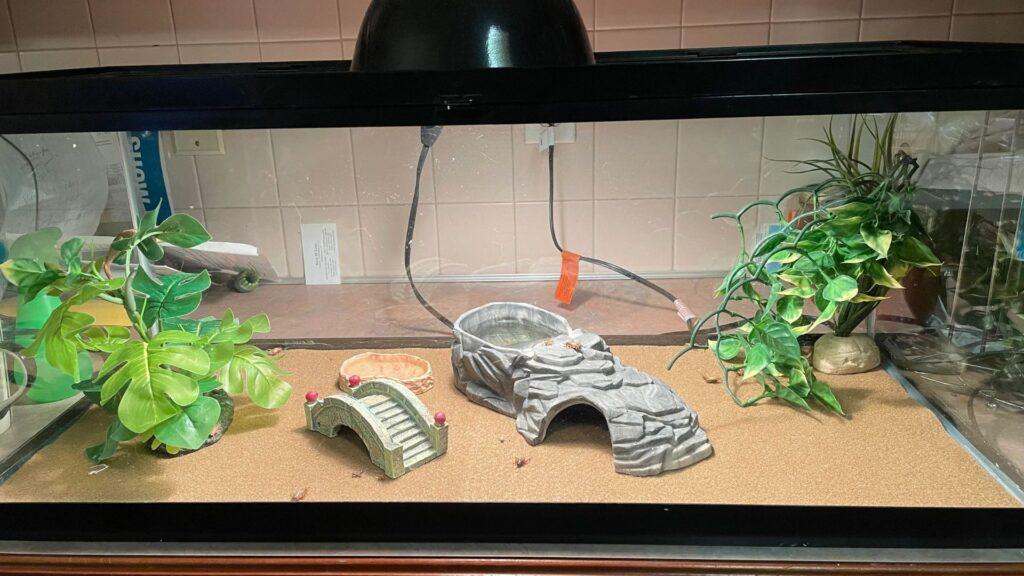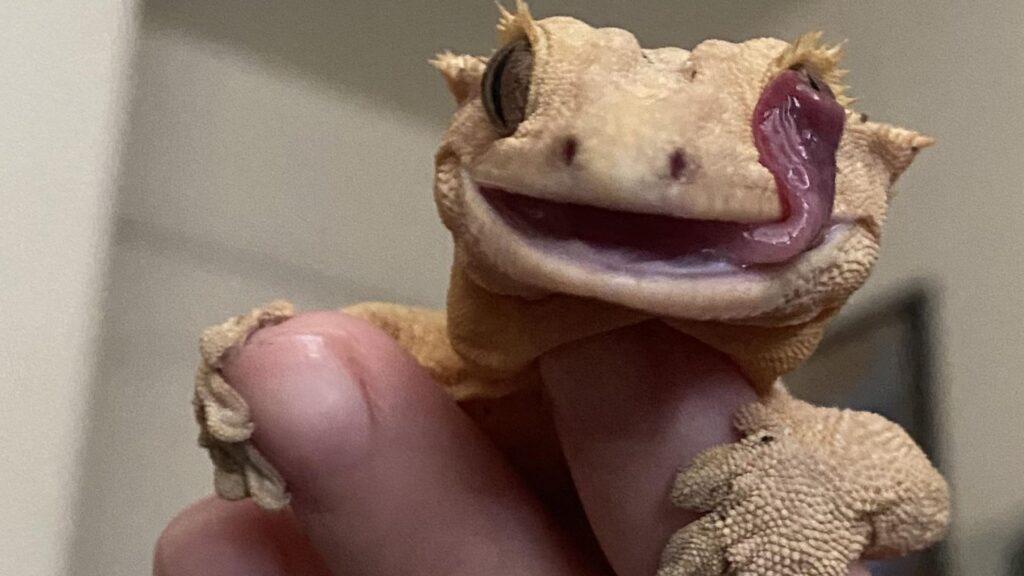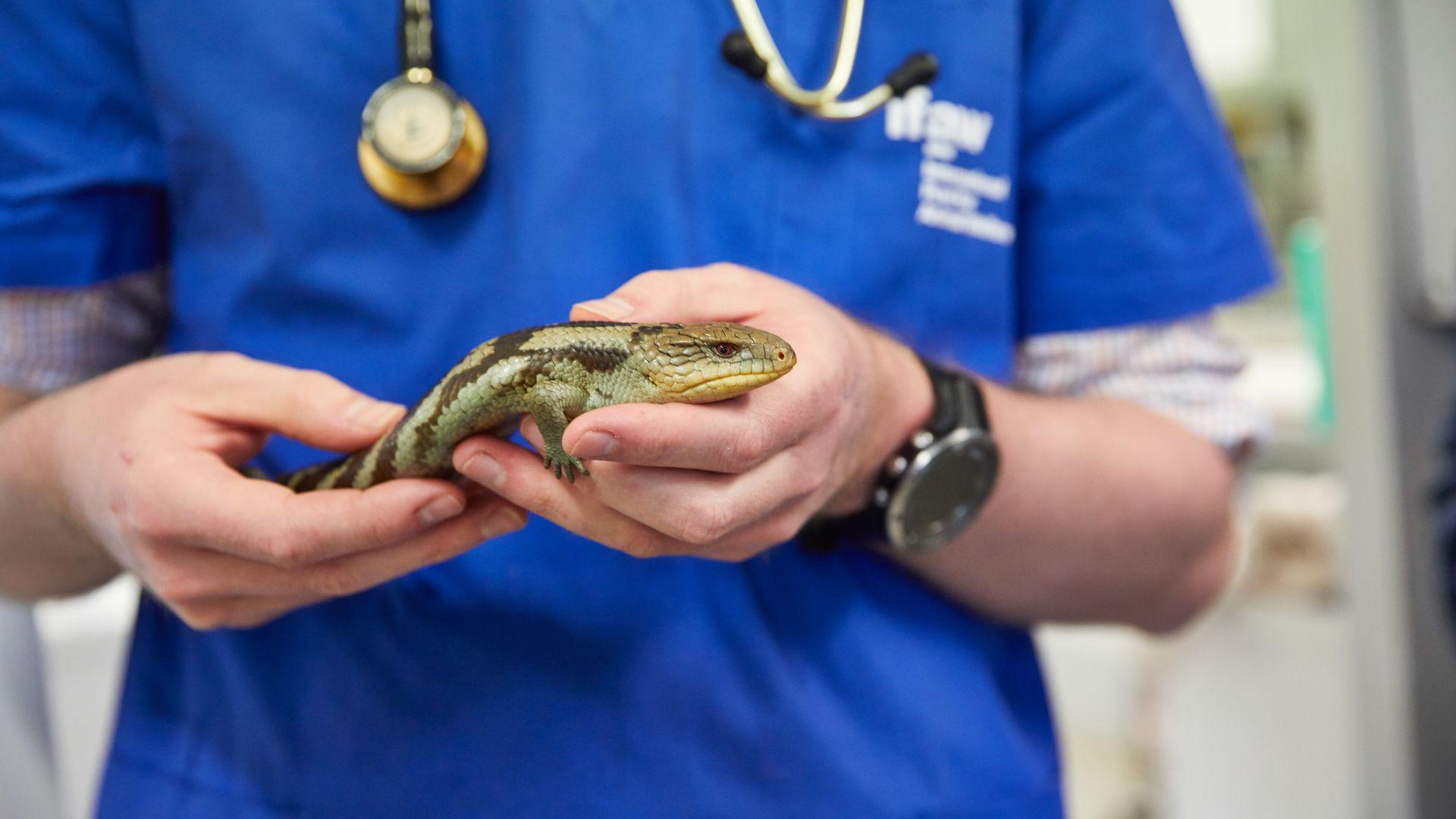
Key Takeaway:
- Crested gecko respiratory infections (URTI) are a common health issue caused by factors such as stress, poor husbandry, and exposure to bacteria or pathogens.
- Symptoms of respiratory infections in crested geckos include wheezing, runny nose, mouth breathing, lethargy, and loss of appetite.
- Treating a respiratory infection involves seeking veterinary care, improving husbandry, isolating the infected gecko, cleaning the enclosure, and monitoring the gecko’s health.
Crested geckos are popular pets and are known for their unique physical appearance and low maintenance requirements.
However, like any other pet, they can get sick and require proper care.
One common health issue faced by crested geckos is respiratory infections. These infections can be caused by a number of factors, including stress, poor husbandry, and exposure to bacteria or other pathogens.
In this article, we will provide a comprehensive guide on how to diagnose and treat respiratory infections in crested geckos.
What Is Crested Gecko Respiratory Infection?
Crested gecko respiratory infection, also known as Upper Respiratory Tract Infection (URTI), is a common health issue faced by these pet reptiles.
It is caused by a bacterial or viral infection in the respiratory system and can affect the nasal passages, throat, and lungs.
The infection can be triggered by a variety of factors, such as stress, poor husbandry, exposure to bacteria or other pathogens, or a weakened immune system.
The signs and symptoms of respiratory infection in crested geckos include, but are not limited to, wheezing, bubbling sounds from the nose or mouth, runny nose, mouth breathing, lethargy, loss of appetite, and swelling around the face or neck.
If left untreated, a respiratory infection can lead to more serious health problems and even death.
Therefore, it is important to seek veterinary care as soon as you suspect your crested gecko may be suffering from a respiratory infection.
Causes Of Crested Gecko Respiratory Infection
There are several factors that can cause a respiratory infection in crested geckos. Some of the most common causes include:
Stress
Stress can weaken the immune system, making the crested gecko more susceptible to respiratory infections.
Stress can be caused by several factors, such as changes in environment, diet, or living conditions.
Poor Husbandry
Poor living conditions, such as low humidity levels, overcrowding, and exposure to contaminated surfaces or substrates, can increase the risk of respiratory infections in crested geckos.

Bacterial or Viral Pathogens
Bacterial or viral pathogens can cause respiratory infections in crested geckos. These pathogens can be present in the environment or can be transmitted from other infected animals.
Weakened Immune System
A weakened immune system can increase the risk of respiratory infections in crested geckos.
This can be caused by several factors, such as poor nutrition, disease, or exposure to stress.
It is important to maintain good husbandry practices and provide a healthy and stress-free environment for your crested gecko to minimize the risk of respiratory infections and other health problems.
Additionally, it is recommended to seek veterinary care if you suspect your pet is suffering from a respiratory infection.
Symptoms Of Crested Gecko Respiratory Infection
Crested gecko respiratory infections can cause a range of symptoms, including:
Wheezing or bubbling sounds from the nose or mouth
This can indicate an infection in the respiratory system.
Runny nose
A clear or cloudy discharge from the nose can be a sign of a respiratory infection.
Mouth breathing
Crested geckos typically breathe through their nose, so if they start to breathe through their mouth, it may indicate a respiratory infection.
Lethargy
If your crested gecko is less active and has a reduced appetite, it may be a sign of a respiratory infection.
Swelling around the face or neck
Swelling can occur as a result of inflammation caused by the infection.
Loss of appetite
A decreased appetite is common in crested geckos with respiratory infections.
It’s important to keep an eye out for these symptoms and seek veterinary care if you suspect your crested gecko has a respiratory infection.
Early diagnosis and treatment can help prevent the infection from becoming more serious and potentially life-threatening.

How To Treat Crested Gecko Respiratory Infection
Treating a crested gecko respiratory infection typically involves a combination of veterinary care and changes to the pet’s husbandry and environment.
Here are some steps you can take to help treat a respiratory infection in your crested gecko:
Seek veterinary care
Your veterinarian will be able to diagnose the cause of the infection and provide appropriate treatment, such as antibiotics or other medications.
Improve husbandry
Maintaining a healthy and stress-free environment for your crested gecko is essential for preventing and treating respiratory infections.
Ensure that the temperature and humidity levels in the enclosure are appropriate and that the pet has access to clean water and a nutritious diet.
Isolate the infected gecko
To prevent the spread of the infection to other animals, it’s important to isolate the infected crested gecko.
Clean the enclosure
Thoroughly clean and disinfect the crested gecko’s enclosure and any items in it to prevent re-infection.
Monitor the gecko’s health
Regular monitoring of your crested gecko’s health is essential to ensure that the infection is being effectively treated and that the pet is making a full recovery.
It’s important to follow the instructions of your veterinarian and to provide proper care for your crested gecko to help treat the respiratory infection and prevent it from happening again in the future.
How To Prevent Crested Gecko Respiratory Infection
Preventing a respiratory infection in crested geckos involves providing a healthy and stress-free environment, maintaining good husbandry practices, and taking steps to prevent the spread of pathogens.
Here are some steps you can take to help prevent respiratory infections in your crested gecko:
Maintain appropriate temperature and humidity levels
Crested geckos require a specific range of temperature and humidity levels to maintain good health.
Ensure that the enclosure provides appropriate conditions for your pet.
Provide a clean and sanitary environment
Regularly clean and disinfect the crested gecko’s enclosure and any items in it, such as feeders, water dishes, and hiding places.

Avoid overcrowding
Overcrowding can increase the risk of disease transmission, so it’s important to provide adequate space for each crested gecko.
Feed a balanced diet
A balanced diet, including a variety of high-quality insects and fruits, can help maintain the crested gecko’s immune system and prevent infections.
Minimize stress
Stress can weaken the immune system and increase the risk of infections, so it’s important to provide a stress-free environment for your pet.
Quarantine new animals
Before introducing new animals to your collection, it’s important to quarantine them for several weeks to ensure that they are not carrying any pathogens that could infect your other pets.
By following these guidelines and providing proper care for your crested gecko, you can help prevent respiratory infections and ensure the good health of your pet.
How To Care For A Sick Crested Gecko
Caring for a sick crested gecko may seem daunting, but with the right support, you can help your pet make a full recovery.
The first step is to seek veterinary care to diagnose the illness and receive appropriate treatment. Your veterinarian may prescribe medications, such as antibiotics, to treat the infection.
In addition to veterinary care, providing a warm and humid environment, maintaining good hygiene practices, and ensuring a balanced diet can all help support your crested gecko’s health.

It’s also important to minimize stress and provide a quiet, stress-free environment for your pet to rest and recover.
With proper care and attention, your crested gecko can recover from its illness and return to good health.
Remember to always follow your veterinarian’s instructions and monitor your pet’s health closely, and reach out to your vet if you have any concerns.
Summary
Crested gecko respiratory infection is a common health issue faced by pet reptiles.
It is caused by a bacterial or viral infection in the respiratory system and can result from stress, poor husbandry, exposure to pathogens, or a weakened immune system.
Symptoms include wheezing, runny nose, mouth breathing, lethargy, loss of appetite, and swelling.
It’s important to seek veterinary care and follow proper husbandry practices to prevent and treat respiratory infections.
Maintaining a healthy and stress-free environment, isolating infected geckos, cleaning the enclosure, and monitoring the pet’s health are key steps in treating a respiratory infection.

